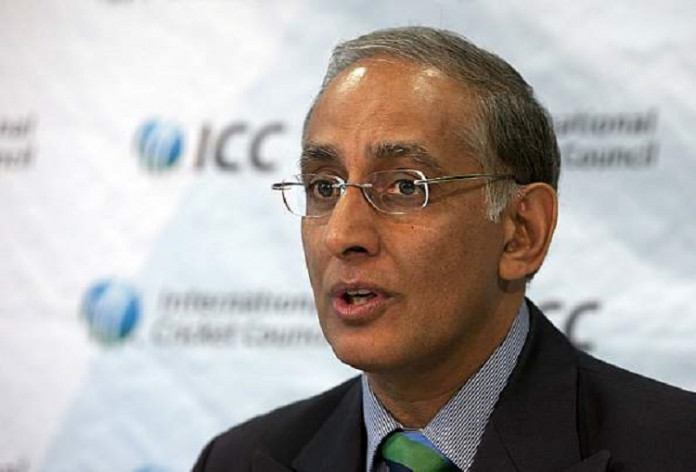
Haroon Lorgat, the Cricket South Africa’s (CSA) chief executive, made a ‘strong exception’ to David Richardson’s comment during his press conference in Sri Lanka, where he had indicated that CSA and other boards didn’t do enough to prevent the ‘big boys’ (India, Australia and England) from taking control of the International Cricket Council (ICC) in 2014.
In fact, the South African board in all likelihood would take up the matter with Shashank Manohar, the ICC chairman.
“If he is indeed correctly quoted, his remarks come as a complete shock to us,” Lorgat said on Saturday (December 17). “For someone who was actually party to the 2014 resolutions to now make such a disparaging remark to CSA is frankly nonsense and insulting to us.
“The CSA Board had from the very outset realised how damaging the original proposals would have been to the global growth of the game and together with Pakistan and Sri Lanka had strongly opposed it. This included CSA making a significant written submission to the ICC Board which had resulted in a number of the original proposals being amended. That’s in fact the reason why we are where we are now. The CSA Board will always stand up for what it believes to be right for the game.”
Richardson in his press conference at Sri Lanka Cricket’s (SLC) headquarters had said: “The international game has gone through a period of turbulence, where the governance, the financial model, the playing [of the game] was in turmoil by the resolutions passed by the ICC in 2014 … What happened in 2014 took place really because unfortunately countries like South Africa, Sri Lanka and New Zealand were not able to stand up to the big boys. I don’t think that will happen again.”
Two years ago, the ICC had revamped its administration and revenue distribution model after Cricket Australia (CA), Board of Control for Cricket in India (BCCI) and England and Wales Cricket Board (ECB) pushed for substantial executive and financial powers to be shared between the three boards. The recommendations took other boards by surprise. Pakistan Cricket Board (PCB) and SLC had opposed the move. CSA, too, was against the proposed takeover, but they finally agreed to it.
Eventually, in February 2016, the ICC decided to remove the three boards from “permanent positions” on the executive, finance and commercial affairs panels. Manohar, who was elected as ICC’s first independent Chairman in May this year, also said that the governing body would try work out for a better revenue distribution model.






















